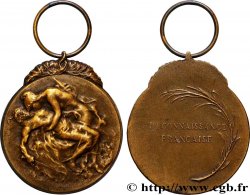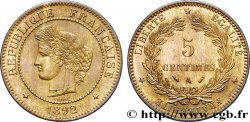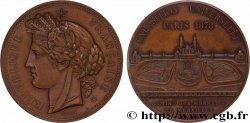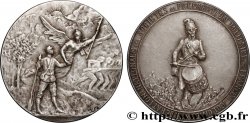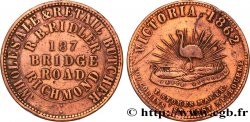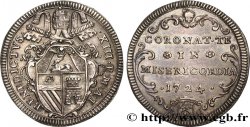Live auction - fme_863998 - III REPUBLIC Plaque, Paul Bert par Rispal
You must signin and be an approved bidder to bid, LOGIN TO BID. Accounts are subject to approval and the approval process takes place within 48 hours. Do not wait until the day a sale closes to register. Clicking on "BID" constitutes acceptance of the terms of use of cgb.fr private live auctions.
Bids must be placed in whole Euro amounts only. The sale will start closing at the time stated on the item description; any bids received at the site after the closing time will not be executed. Transmission times may vary and bids could be rejected if you wait until the last second. For further information check the Live auction FAQ
All winning bids are subject to a 18% buyer’s fee.
All winning bids are subject to a 18% buyer’s fee.
| Estimate : | 350 € |
| Price : | no bid |
| Maximum bid : | no bid |
| End of the sale : | 24 October 2023 18:42:39 |
Type : Plaque, Paul Bert par Rispal
Date: 1886
Metal : bronze
Diameter : 321 mm
Orientation dies : 12 h.
Weight : 2098 g.
Edge : lisse
Puncheon : sans poinçon
Coments on the condition:
Large plaque à la patine hétérogène avec des taches d’oxydation et quelques taches. Poussière dans les creux. Peu d’usure
Catalogue references :
Obverse
Obverse legend : PAUL BERT // TONKIN // 1886.
Obverse description : Tête de profil à gauche. Ruban s’enroulant autour d’une palme à l’exergue. Signé : RISPAL.
Reverse
Reverse legend : INCUS.
Commentary
Dimensions sans bélière : 207 mm.
Paul Bert (1833-1886) est un médecin, physiologiste et homme politique français. Élu député, il deviendrait ministre de l’instruction publique et des cultes (1881-1882), puis résident général d’Annam-Tonkin en 1886 où il meurt des suites du choléra.
Attention ! En fonction du lieu d’expédition, cette médaille peut donner lieu à des frais de port supplémentaires.
Be aware that in function of the shipping place, this medal may rise the shipping fees...
Paul Bert (1833-1886) est un médecin, physiologiste et homme politique français. Élu député, il deviendrait ministre de l’instruction publique et des cultes (1881-1882), puis résident général d’Annam-Tonkin en 1886 où il meurt des suites du choléra.
Attention ! En fonction du lieu d’expédition, cette médaille peut donner lieu à des frais de port supplémentaires.
Be aware that in function of the shipping place, this medal may rise the shipping fees...







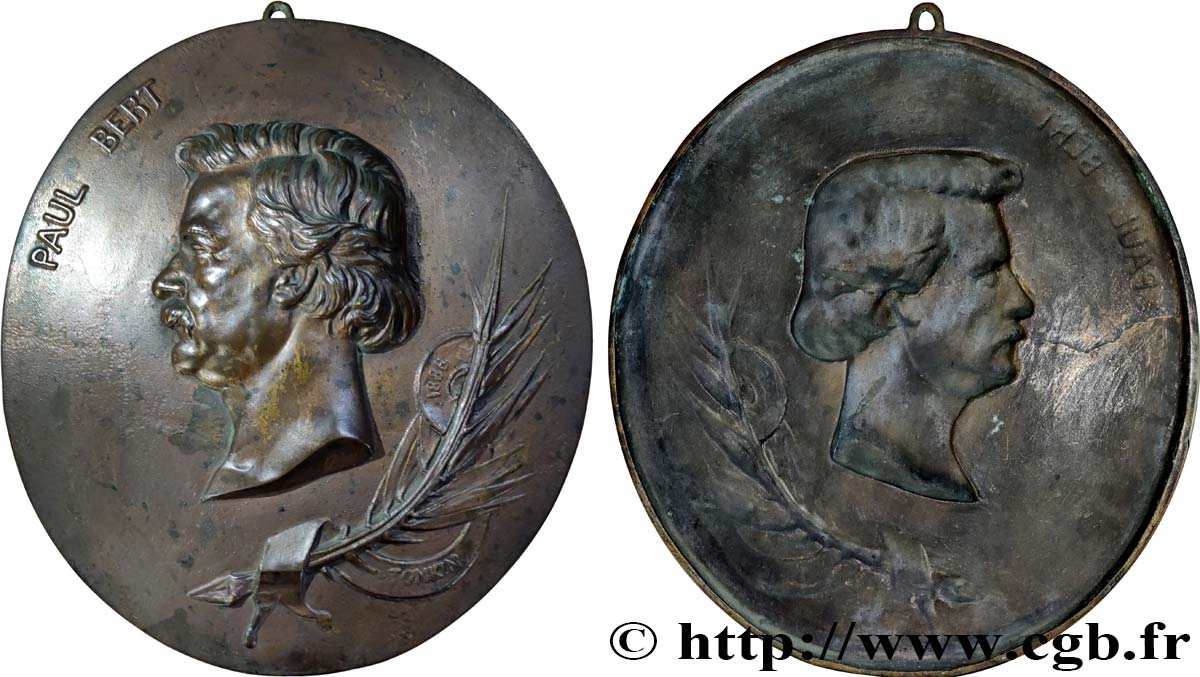
 Report a mistake
Report a mistake Print the page
Print the page Share my selection
Share my selection Ask a question
Ask a question Consign / sell
Consign / sell
 Full data
Full data

